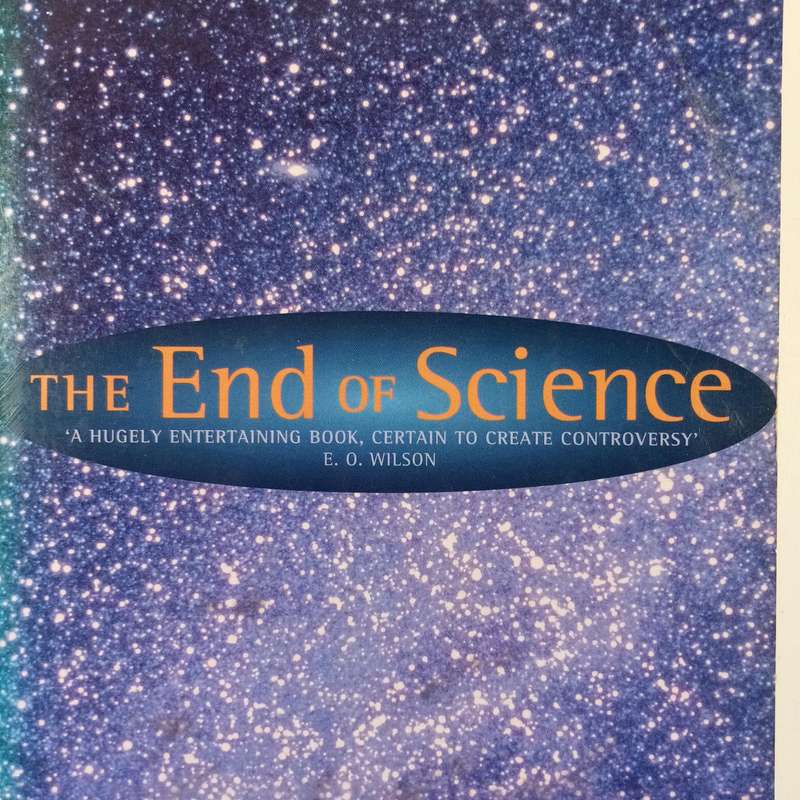
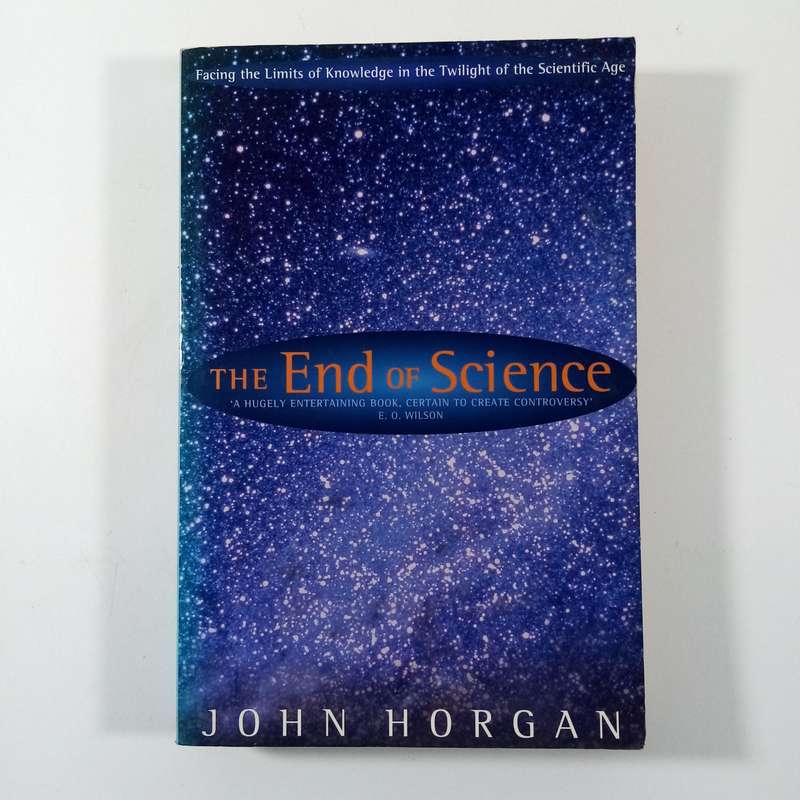
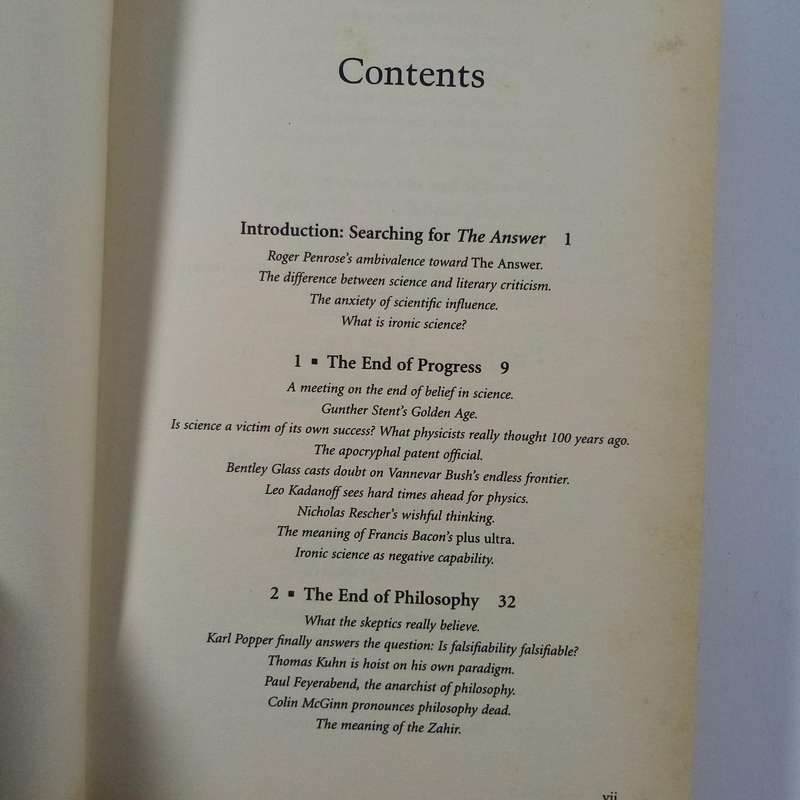
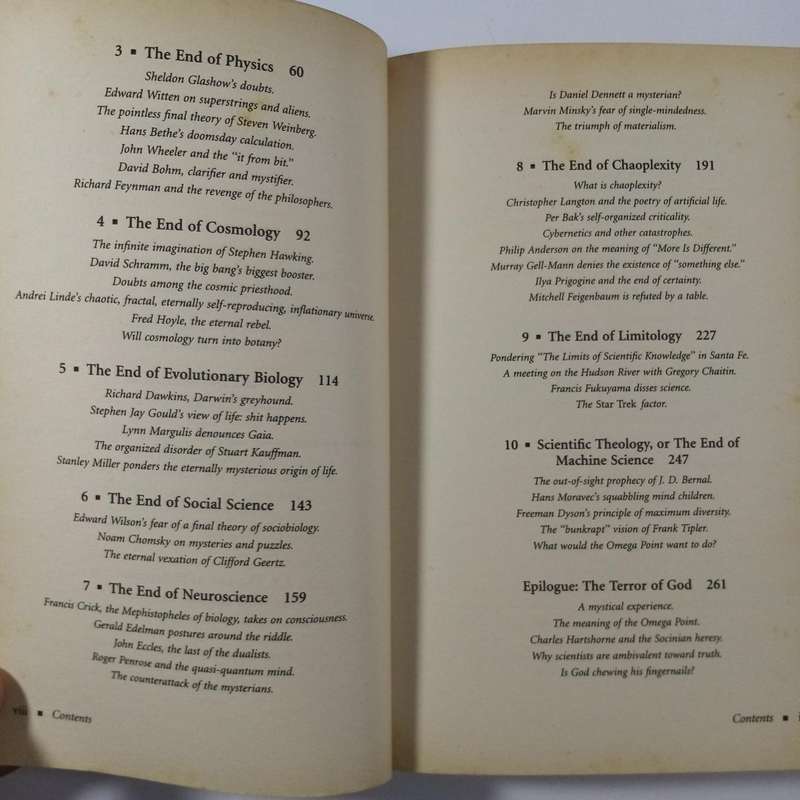
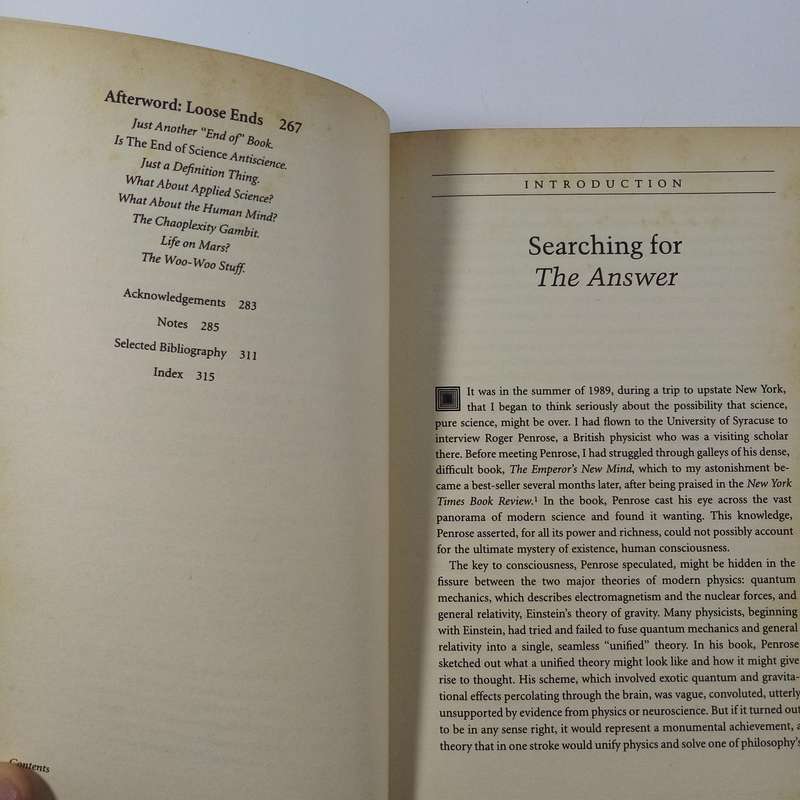
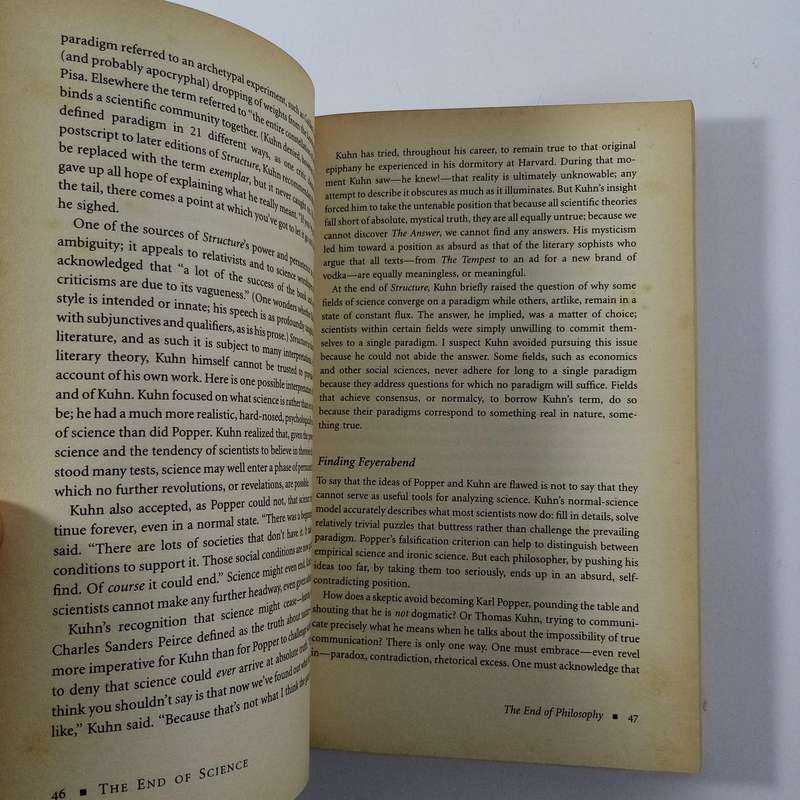
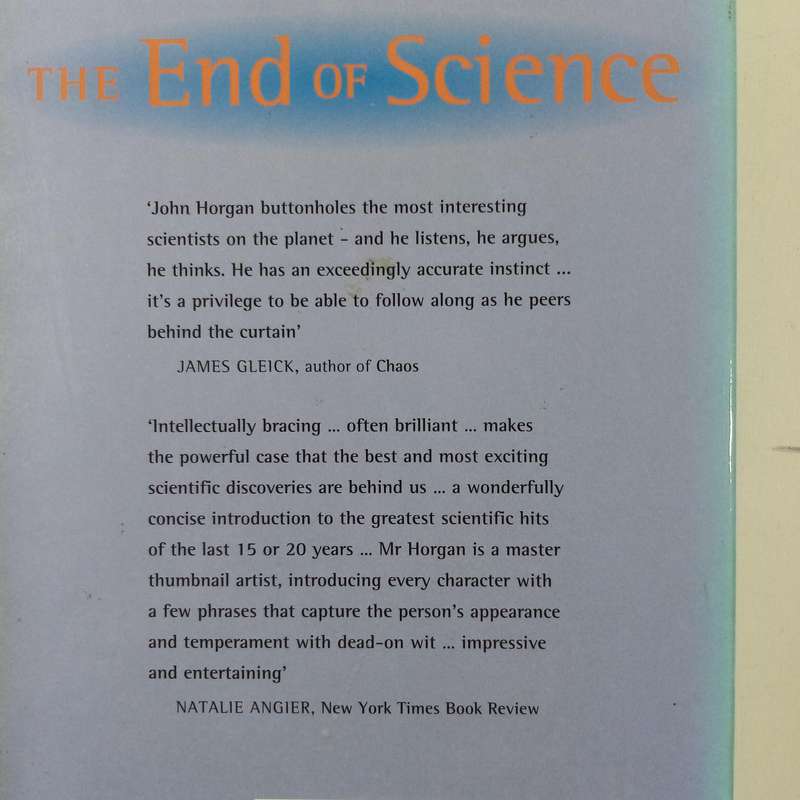
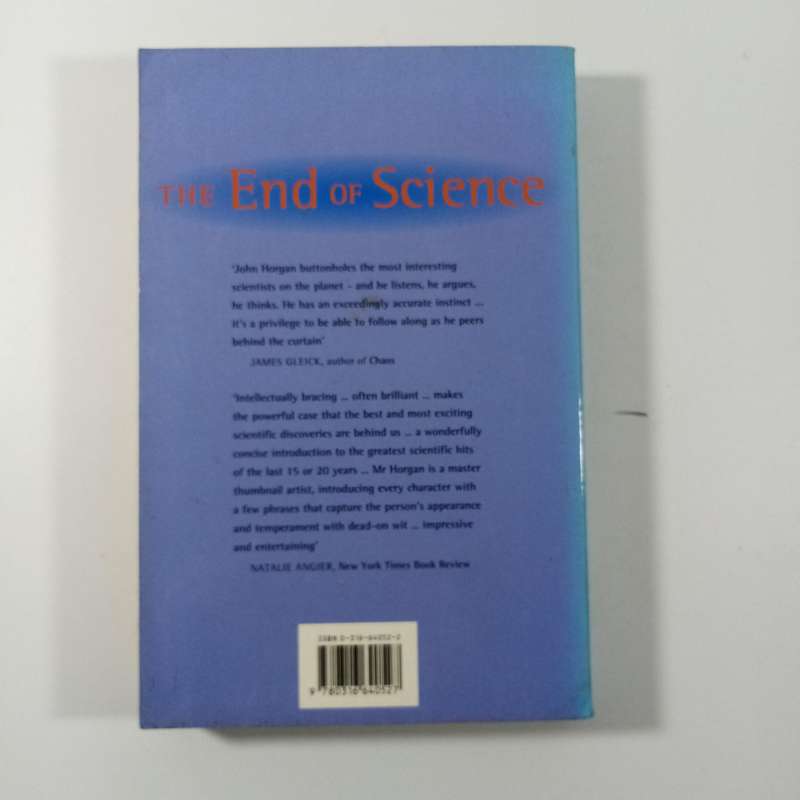
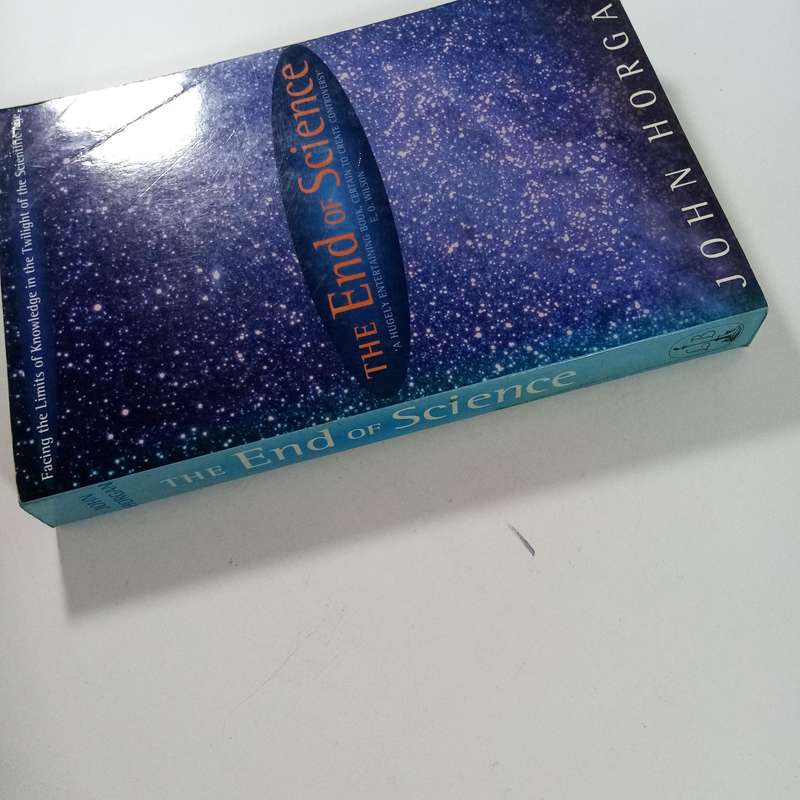
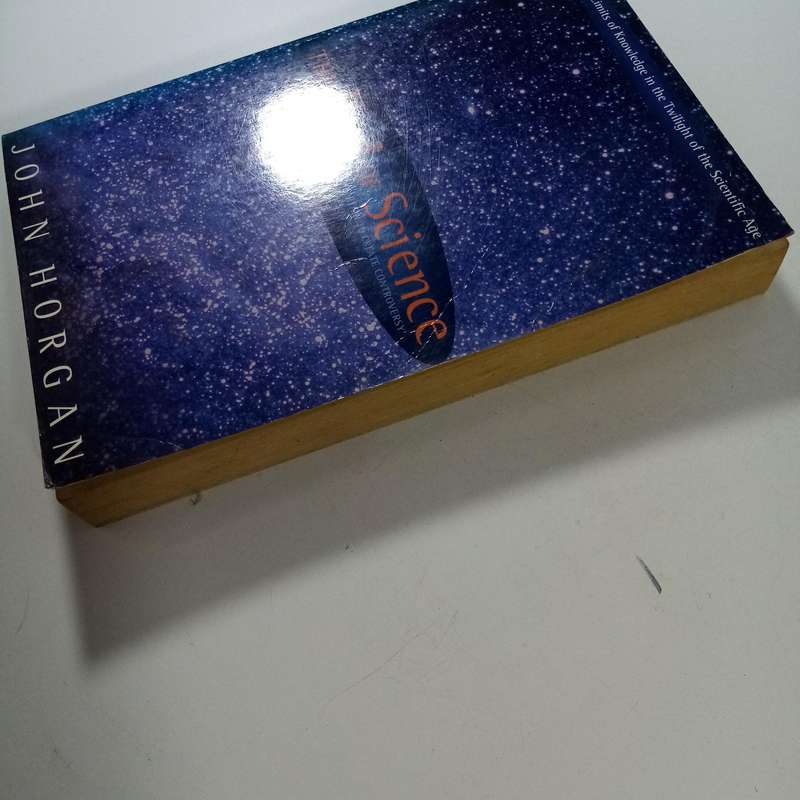





The End of Science by John Horgan | Science, Philosophy, Physics, Final Theory, Discovery
Check my rate
| Main centres: | 1-3 business days |
| Regional areas: | 3-4 business days |
| Remote areas: | 3-5 business days |















| Main centres: | 1-3 business days |
| Regional areas: | 3-4 business days |
| Remote areas: | 3-5 business days |
Synopsis:
The End of Science by John Horgan explores a provocative question: Is science nearing its final frontier? As a leading journalist at Scientific American, Horgan interviews some of the greatest scientific minds of our timeStephen Hawking, Richard Dawkins, Karl Popper, Murray Gell-Mann, and othersto investigate whether modern science has answered the biggest questions it can.
He delves into the philosophical and technical boundaries imposed by theories like relativity, quantum mechanics, and chaos theory, raising the possibility that science may now be limited to refining rather than revolutionizing. Horgan also examines cultural and intellectual threats to sciences authority, suggesting that we may be entering a phase of "ironic science"rich in speculation but poor in empirical discovery.
Both critical and reverent, the book questions the future of breakthroughs while honoring the legacy of scientific achievement.
Key Topics Covered:
Scientific limits and the "end" of discovery
Theoretical boundaries in physics
Science vs. philosophy and culture
Interviews with major scientists
Role of uncertainty, relativity, and chaos
Cultural criticism and postmodern influence
The End of Science, John Horgan, science philosophy, popular science book, scientific discovery, future of science, physics theory, quantum mechanics, final theory, Stephen Hawking, Karl Popper, Richard Dawkins, Murray Gell-Mann, chaos theory, scientific limits, modern science, science criticism, science and society, ironic science, philosophy of science